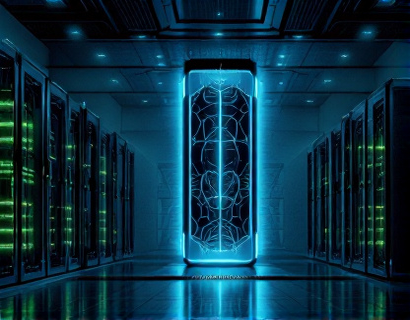Maximizing Token Value with Secure Smart Contract Locking Solutions for Blockchain Investors
In the rapidly evolving landscape of blockchain technology, investors and businesses are continually seeking innovative ways to enhance their portfolios and secure their digital assets. One of the most promising solutions is the use of smart contracts to lock tokens for long-term incentives. This approach not only maximizes investment potential but also significantly enhances token utility and fosters trust within the blockchain ecosystem. By leveraging expert smart contract solutions, individuals and organizations can set a new standard in the industry, ensuring both security and transparency.
Understanding Smart Contract Locking Solutions
Smart contract locking solutions involve the deployment of self-executing contracts with the terms of the agreement directly written into code. These contracts run on blockchain networks, ensuring that once deployed, they cannot be altered or tampered with. When applied to token locking, these smart contracts automatically hold tokens for a predetermined period, releasing them only when specific conditions are met. This mechanism provides a reliable and automated way to manage token distributions, rewards, and incentives.
Enhancing Token Utility
One of the primary benefits of using smart contract locking solutions is the enhancement of token utility. By locking tokens for specific periods, projects can create structured incentive programs that encourage long-term engagement and participation. For instance, a decentralized application (dApp) can use a smart contract to distribute tokens to users who actively contribute to the platform, such as by providing liquidity, participating in governance, or completing tasks. This not only increases the utility of the token by creating a meaningful reward system but also fosters a vibrant and active community around the dApp.
Building Trust in the Blockchain Ecosystem
Trust is a critical factor in the adoption and success of blockchain-based projects. Smart contract locking solutions inherently provide a high level of trust due to their immutable and transparent nature. Once a smart contract is deployed, its code and the status of locked tokens are visible on the blockchain, allowing anyone to verify the terms and conditions. This transparency reduces the risk of fraud and manipulation, making it easier for investors and users to trust the system. Furthermore, the automated execution of smart contracts eliminates the need for intermediaries, reducing the potential for human error and corruption.
Long-Term Incentives and Portfolio Optimization
For investors, locking tokens using smart contracts can be a strategic way to optimize their portfolios and secure long-term gains. By locking tokens for a specified period, investors can lock in their investment and benefit from potential price appreciation over time. This strategy is particularly effective in volatile markets where short-term fluctuations can lead to suboptimal decision-making. Smart contract locking solutions allow investors to set clear goals and timelines, ensuring that their tokens are held and utilized in a manner that aligns with their investment objectives.
Moreover, these solutions can be designed to release tokens based on performance metrics, such as the achievement of certain milestones or the maintenance of specific price thresholds. This conditional release mechanism incentivizes both the project and the investors to work towards shared goals, further aligning interests and maximizing the potential for success. For businesses, this approach can help in retaining key stakeholders and ensuring that incentives are tied to meaningful outcomes.
Security Features of Smart Contract Locking Solutions
Security is paramount in the blockchain space, and smart contract locking solutions offer robust protections against various threats. The immutable nature of smart contracts means that once deployed, they cannot be altered, reducing the risk of unauthorized changes. Additionally, the use of cryptographic techniques ensures that only authorized parties can interact with the contract, preventing unauthorized access or manipulation. Regular audits and testing of smart contracts further enhance their security, identifying and mitigating potential vulnerabilities before deployment.
Another significant security feature is the use of multi-signature wallets and threshold signatures, which require multiple approvals for critical operations such as token release. This multi-layer security approach ensures that no single point of failure can compromise the integrity of the locked tokens. By integrating these advanced security measures, smart contract locking solutions provide a high level of confidence for investors and businesses looking to secure their digital assets.
Case Studies and Real-World Applications
Several successful projects have already implemented smart contract locking solutions to great effect. One notable example is a decentralized finance (DeFi) platform that used a smart contract to distribute governance tokens to liquidity providers. The tokens were locked for a year, with the condition that providers could vote on protocol upgrades and receive additional rewards based on their participation. This approach not only incentivized liquidity provision but also ensured that governance decisions were made by those with a vested interest in the platform's success.
Another example is a non-fungible token (NFT) marketplace that utilized smart contracts to lock a portion of artist royalties for a specified period. This ensured that artists received their rightful earnings and encouraged collectors to support emerging talent, knowing that their investment would contribute to the artists' long-term success. These real-world applications demonstrate the versatility and effectiveness of smart contract locking solutions in various blockchain use cases.
Challenges and Considerations
While smart contract locking solutions offer numerous benefits, there are also challenges and considerations that must be addressed. One of the primary challenges is the complexity of smart contract development. Creating secure and efficient contracts requires specialized knowledge and expertise, which can be a barrier for some projects. To mitigate this, collaborating with experienced blockchain developers and utilizing proven smart contract frameworks can help ensure the success of the implementation.
Another consideration is the potential for smart contract bugs or vulnerabilities, despite rigorous testing. It is essential to conduct thorough audits and use formal verification methods to identify and fix any issues before deployment. Additionally, the choice of blockchain platform can impact the performance and cost of smart contracts, so selecting a platform that aligns with the project's requirements is crucial.
Future Trends and Innovations
The use of smart contracts for token locking is an area of rapid innovation, with several trends shaping the future of blockchain investments. One emerging trend is the integration of advanced oracles to provide real-time data for conditional token releases, enhancing the flexibility and responsiveness of smart contract-based incentives. Another trend is the development of cross-chain solutions that allow smart contracts to interact across different blockchain networks, expanding the scope and utility of locked tokens.
Furthermore, the rise of layer 2 solutions and scalability protocols is making smart contract operations more efficient and cost-effective. As these technologies mature, the adoption of smart contract locking solutions is expected to grow, driven by the increasing demand for secure, transparent, and user-friendly blockchain applications.
Conclusion
In conclusion, smart contract locking solutions represent a powerful tool for blockchain investors and businesses looking to maximize their investment potential. By enhancing token utility, building trust, and providing secure and transparent mechanisms for token management, these solutions set a new standard in the industry. As the blockchain ecosystem continues to evolve, the strategic use of smart contracts will play a pivotal role in shaping the future of digital assets and decentralized applications.










































